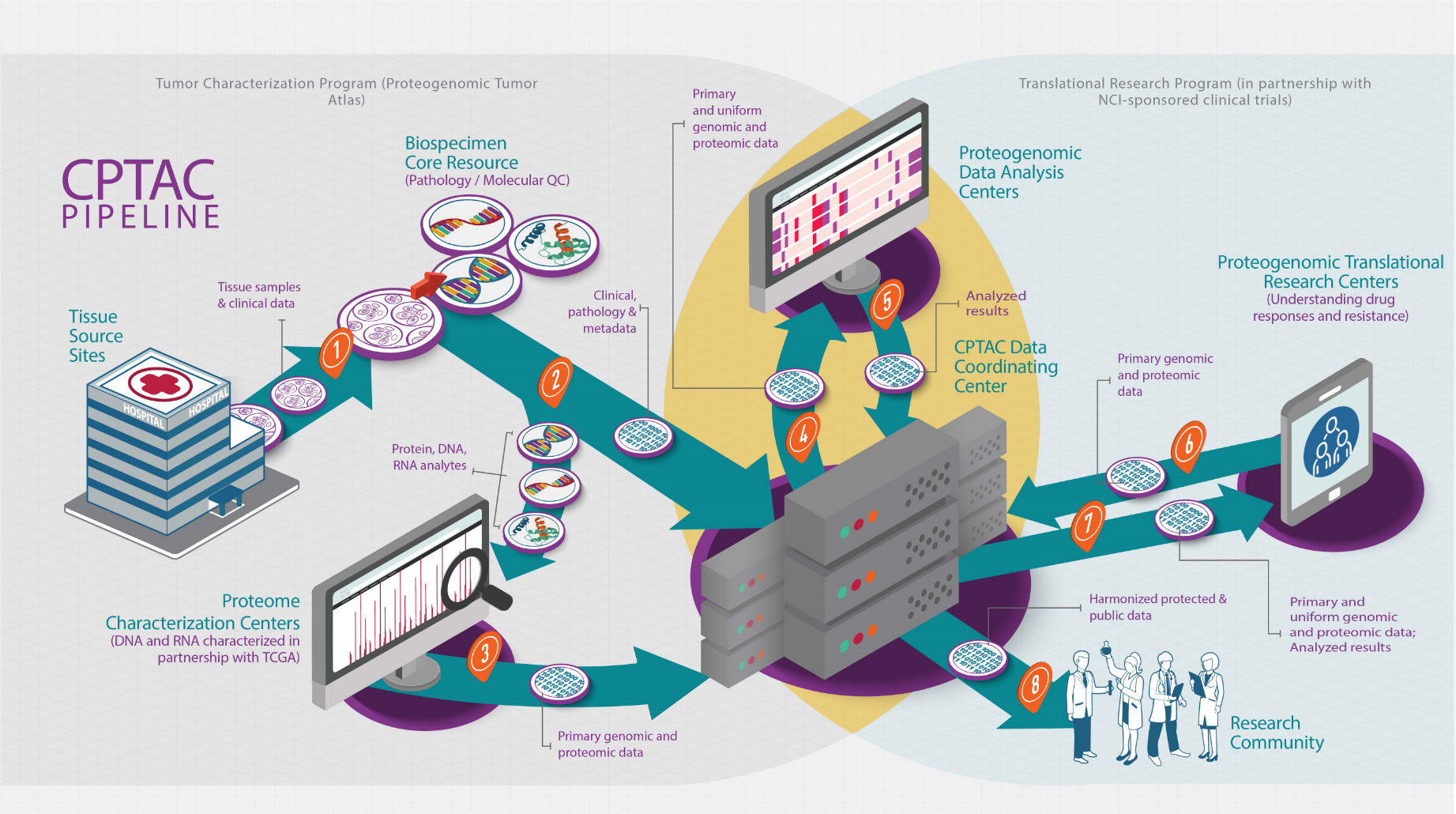OCCPR Leading the War Against Cancer in the Next Battlefield: Proteomics and Protegenomics
The mission of OCCPR (Office of Cancer Clinical Proteomics Research) is to improve the prevention, early detection, diagnosis, and treatment of cancer, by enhancing the understanding of the molecular mechanisms of cancer and advancing proteome and proteogenomic science and technology development through community resources, and accelerate the translation of molecular findings into clinics.

The Clinical Proteomic Tumor Analysis Consortium (CPTAC) is a program supported by the OCCPR that was launched in 2011 and pioneered the proteogenomic analysis of colorectal, ovarian, and breast cancer, to unveil new molecular and genetic insights, such as proteomic-centric subtypes, prioritization of driver mutations by correlative analysis of copy number alterations and protein abundance, and understanding cancer-relevant pathways through posttranslational modifications.
Following the CPTAC model, the ICPC or International Cancer Proteogenome Consortium was formed, where 31 institutions from 12 different countries collaborate and share data and advances, enhancing precision oncology to elucidate the biological nature of multiple malignancies. A global threat needs a global response and institutions like this needs support from everyone in the war against cancer.
